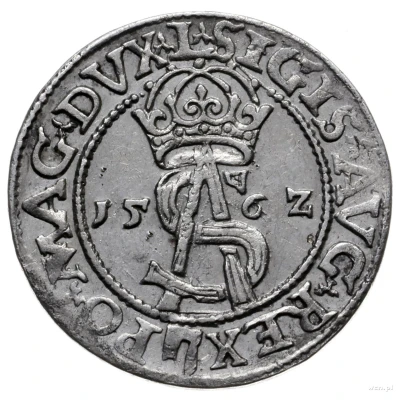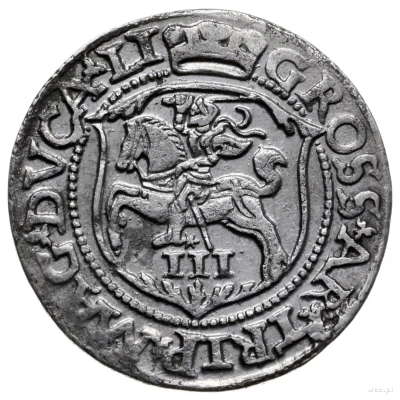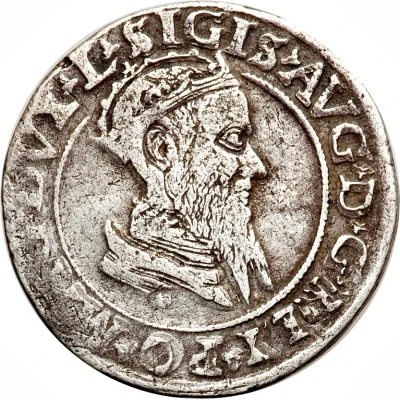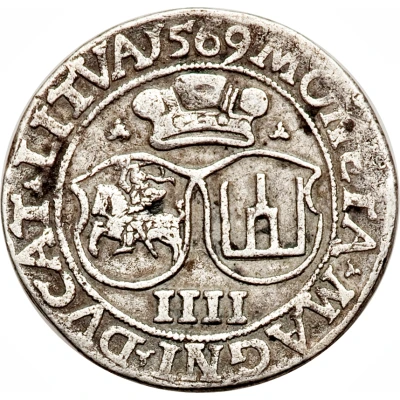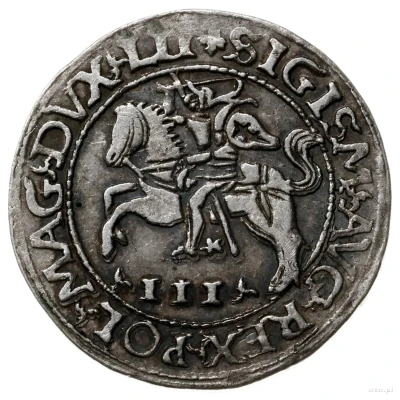
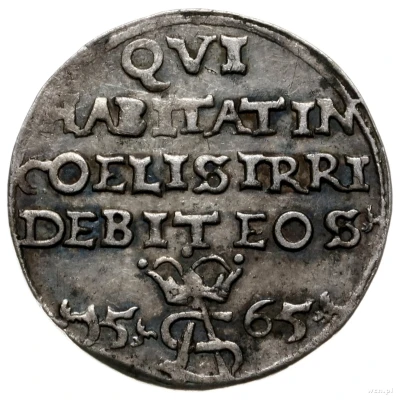

© Warszawskie Centrum Numizmatyczne s.j.
3 Groats - Sigismund II Augustus
| Silver (.875) | 3.00 g | 22 mm |
| Issuer | Grand Duchy of Lithuania |
|---|---|
| Grand duke | Sigismund II Augustus (1548-1572) |
| Type | Standard circulation coin |
| Years | 1565-1566 |
| Value | 3 Groats |
| Currency | Lithuanian Groat (1495-1580) |
| Composition | Silver (.875) |
| Weight | 3.00 g |
| Diameter | 22 mm |
| Shape | Round (irregular) |
| Technique | Hammered |
| Demonetized | Yes |
| Updated | 2024-10-06 |
| Numista | N#259576 |
|---|---|
| Rarity index | 100% |
Reverse
Four line inscription, date divided by crowned monogram below.
Script: Latin
Lettering:
QVI
HABITAT IN
COELIS IRRI
DEBIT EOS
15 (_) 65
Translation:
Quote from Bible Psalm 2:4
The One enthroned in heaven laughs ... at them.
Comment
Some sources tell that coin was minted in Vilnius (Wilno) mint. Tykocin mint operated at the same time. Lack of mint mark makes mint identification controversial.
1565 - Iger V.65.1, Kopicki 3308, Gum. 623
Spelling variants:
Iger V.65.1.a Obverse legend ends MAG D L
Iger V.65.1.b Obverse legend ends MAG DVX L
Iger V.65.1.c Obverse legend ends MAG DVX LI
Iger V.65.1.d Obverse legend ends MAG DVX LIT
Pictures: WCN
Iger V.65.1.e
Iger V.65.1.f Obverse legend ends MAG DVX LITV
Iger V.66.1.a // Kopicki 3309
Interesting fact
One interesting fact about the 3 Groats - Sigismund II Augustus 1565-1566 coin from the Grand Duchy of Lithuania is that it features a unique blend of Christian and pagan imagery. On one side, the coin bears the image of Sigismund II Augustus, the King of Poland and Grand Duke of Lithuania, surrounded by symbols of Christianity, such as the cross and the motto "In Nomine Domini" (In the Name of the Lord). On the other side, the coin features a depiction of the Lithuanian pagan goddess of fertility and prosperity, Milda, surrounded by symbols of agriculture and abundance. This blending of religious imagery reflects the cultural and religious diversity of the Grand Duchy of Lithuania during this time period.
